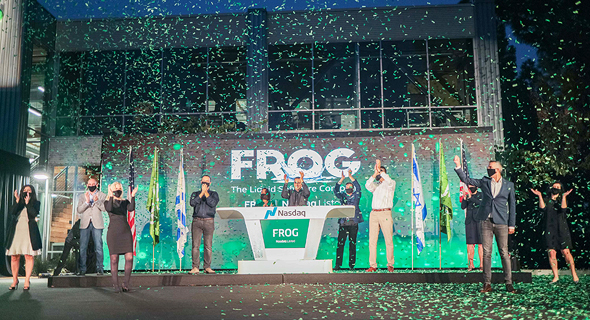Analysis
No longer a damsel in distress: Israeli startups have transformed from sellers to buyers
The total sum in 15 M&A deals involving Israeli companies over the past three months reached almost $5.5 billion, $3 billion of which was spent by local startups making acquisitions
10:2514.09.21
$5.46 billion - that is the total sum in M&A deals involving Israeli companies over the past three months. On the face of it, this isn't such an exceptional figure. After all, Israeli companies have been involved in deals of even larger magnitude in the past. However, the big story isn't the number itself, but rather what it includes. Out of the almost $5.5 billion in 15 deals, $3 billion was spent in seven deals by Israeli companies making an acquisition rather than being acquired. These deals include Kape Technologies buying ExpressVPN for $936 million, Taboola purchasing Connexity for $800 million, and Playtika paying $400 million for Reworks. If you like, the Israeli dream has changed - Israeli companies want to now be big and independent and they aren't shy about purchasing American and European firms on the road to achieving that goal. The figures in 2021 are a testament to that change in Israeli tech's narrative, and perhaps also its place in the global food chain. Israeli companies are no longer a damsel in distress waiting to be rescued.
 JFrog has made two acquisitions since going public earlier this year. Photo: JFrog
JFrog has made two acquisitions since going public earlier this year. Photo: JFrog
 JFrog has made two acquisitions since going public earlier this year. Photo: JFrog
JFrog has made two acquisitions since going public earlier this year. Photo: JFrog Of course, this change has come on the back of an M&A boom following the grinding halt in deals at the start of the Covid-19 outbreak. While the IPO market was blossoming, relatively very few M&A deals were completed in 2020 and the reasons were clear. With all due respect to Zoom, companies were concerned about conducting due diligence remotely and without visiting company offices and meeting employees face-to-face. In addition, tech company valuations surged, leaving many interested buyers on the sideline until the picture became clearer.
Even though valuations are still high, tech companies, including Israeli ones, are now equipped with sums that they couldn't have dreamed of prior to the pandemic. They have also seen their valuations rise, making it easier to complete deals that include shares.
Another boost to this impressive acquisition spree has come from investors of the companies making the purchases. These investors are expecting to see rapid growth following frequent funding rounds and in order to reach these ambitious targets, companies need to acquire firms with income or recruit new staff. The simplest way of bringing in substantial new staff is often by acquiring a company that has a ready-made workforce.
Related articles:
- Israel’s Kape Technologies acquires ExpressVPN for nearly $1 billion
- Taboola acquiring Connexity for $800 million in record deal for Israeli company
- JFrog acquires Upswift in all-Israeli deal
However, signing an agreement and lavishing the acquired company with praise is the easy part. The difficult part will come when trying to merge the new company into the existing infrastructure and creating synergy, which often fails. Many Israeli companies that were acquired in the past learned that a disappointing reality arrives not long after the celebratory photos and announcements when the realization sinks in that they've become a small part of a big corporate machine with a different culture.
One of the interesting processes occurring in that aspect is that many of the recent deals were all-Israeli, as was the case with JFrog's past two purchases and Check Point's acquisition of Avanan. It will be interesting to see if the fact that the two companies involved in an M&A are Israeli will play a role in the success of the deal or that the glum statistic regarding the success of M&A's remains just as relevant even if both companies have former IDF infantry officers or members of Kibbutz.



